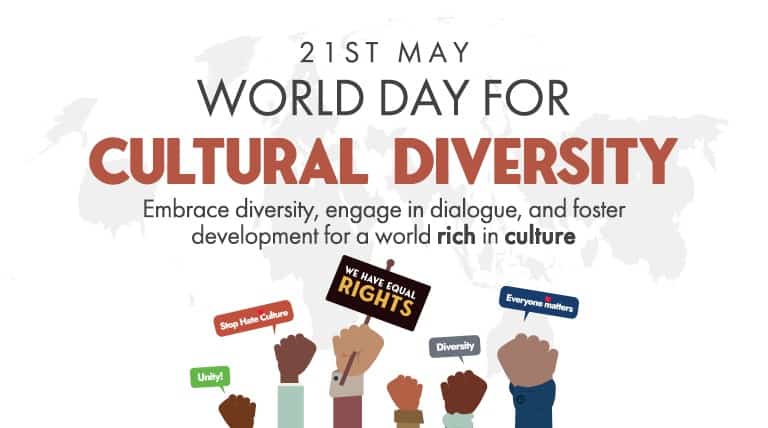World Day for Cultural Diversity: An Islamic Perspective on Fostering Unity and Development

May 21st marks the World Day for Cultural Diversity for Dialogue and Development, a vital occasion established by UNESCO to honor the rich tapestry of global cultures and to underscore the indispensable role of intercultural dialogue in building bridges toward peace and sustainable progress.
From an Islamic viewpoint, the recognition and embrace of cultural diversity are not merely acts of tolerance, but rather a profound acknowledgment of the Divine wisdom inherent in the multiplicity of human expression. As the Holy Quran beautifully states: “And among His signs is the creation of the heavens and the earth, and the diversity of your languages and colors. Verily in that are signs for those who know” (30:22).
This verse encourages reflection on diversity as a manifestation of God’s creative power—not as a source of division.
Furthermore, the Quran emphasizes the purpose behind this diversity:
“O mankind! We created you from a male and a female and made you into nations and tribes so that you may know one another. Verily, the most honored of you in the sight of God is the most righteous of you” (49:13).
This verse makes it clear that cultural differences are intended to foster mutual understanding and knowledge, leading to stronger and more compassionate social bonds.
The teachings of Prophet Muhammad (pbuh&hp) further reinforce this principle. In his Farewell Sermon, he declared: “There is no superiority of an Arab over a non-Arab, nor a non-Arab over an Arab, nor of a white over a black, nor a black over a white—except by piety” (Al-Allamah al-Amini, Al-Ghadīr fī al-Kitāb wa al-Sunnah wa al-Adab. vol. 6, p. 188).
This powerful statement unequivocally rejects all forms of racial or ethnic superiority, emphasizing piety and righteousness as the true measures of human dignity.
Similarly, Imam Ali (peace be upon him) eloquently stated, “People are of two types: either your brothers in faith or your equals in humanity” (Nahj al-Balagha, Letter 53). This timeless wisdom lays a foundation for peaceful coexistence, urging us to recognize our shared humanity even when religious or cultural affiliations differ.
Rooted in these inclusive teachings, a sincere embrace of cultural diversity becomes a powerful antidote to violence and conflict. By fostering understanding and mutual respect, societies can rise above narrow conceptions of identity and instead find common ground in shared values and goals. When diverse communities engage in intercultural dialogue, they are better equipped to address challenges collectively, build resilient societies, and prevent the escalation of tensions that often stem from misunderstanding or prejudice. Recognizing the richness of different perspectives also opens the door to greater creativity, deeper wisdom, and more effective problem-solving.
UNESCO data highlights the importance of the cultural and creative sector as a key driver of global development. It provides more than 48 million jobs worldwide—nearly half held by women—and represents 6.2% of global employment and 3.1% of the world’s GDP. It is also the sector offering the most opportunities to youth under 30. Despite this, it remains undervalued in public policy and international cooperation.
In a world where 89% of current conflicts are taking place in regions with low levels of intercultural dialogue, the need to strengthen such dialogue and celebrate cultural diversity as a unifying force is more urgent than ever. By moving from a mindset of division to one of collaboration rooted in shared human values, we pave the way toward a more peaceful and sustainable future for all.
Ultimately, embracing cultural diversity through sincere dialogue and mutual respect is not just a moral imperative—it is a fundamental path to coexistence, stability, and global peace.

Leave a Comment:
You must be logged in to post a comment.